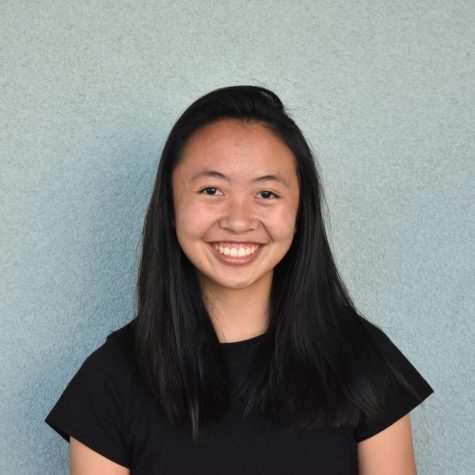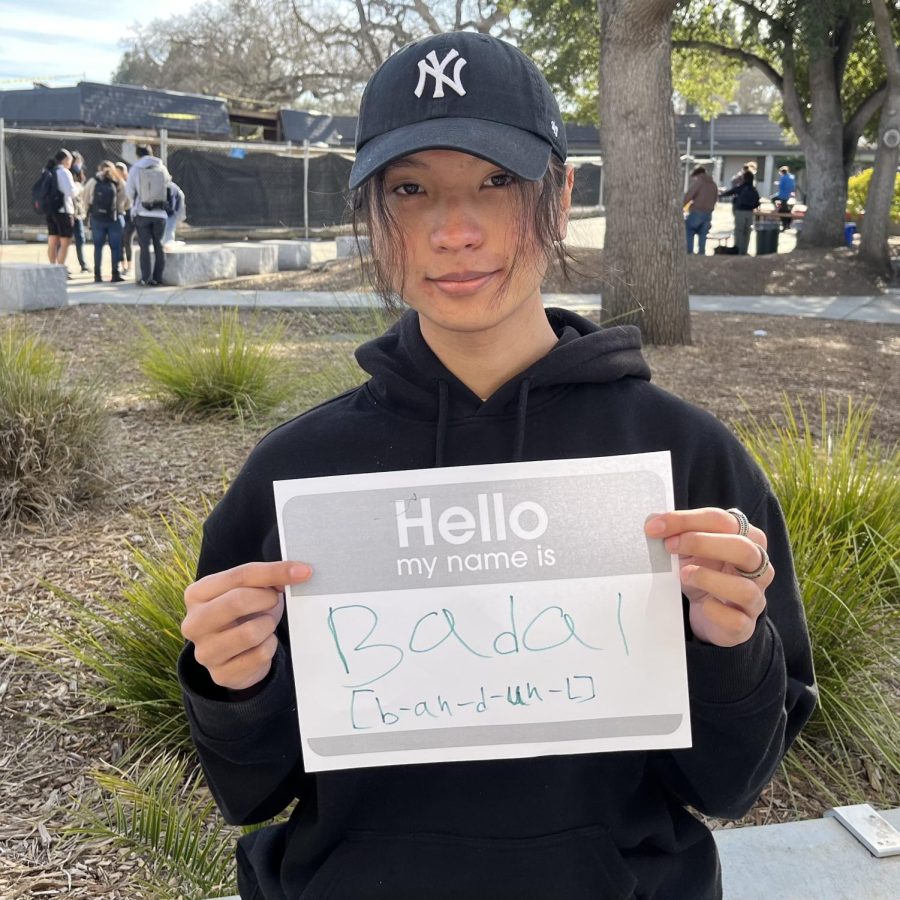What’s in a name: Mispronunciation of names compromises underlying meaning, traditions
As a young kid, Wellness Outreach Worker Rosie (roh-z) Castillo scanned the Disneyland keychains to find her name. But even the happiest place on earth didn’t have a keychain for her.
This small yet simple incident is a shared experience among many. A name is much more than a word. It not only is a way to be addressed, but it also appears on legal documents for important milestones such as driver’s licenses and diplomas. A name carries identity, culture and meaning. For some, their name may hold significant value because of the loved ones they were named after or who chose it. Even for people who may not believe that their name is unique, a name acknowledges all identities: who you are as a person, what your background is and what your family values. A name can also cause cultures to clash, as some people are faced with trying to assimilate in America while maintaining their identity through their name.
Castillo’s parents named her Rossana (roh-sa-na), a combination of her grandmother’s and mother’s name. She began experiencing problems with her name in middle school where there weren’t many children who could pronounce her name correctly. Since Castillo’s name is uniquely spelled with two s’s and one n, many people had a hard time pronouncing it. “I remember thinking, ‘I just wish I had a white name,’” she said. “It didn’t sound pretty to me anymore, which is really sad. I ended up not liking it anymore.”
As a result of this mispronunciation, Castillo adopted a nickname. “I ended up telling people that I was going by Rosie,” she said. “Honestly, that was a lot easier for everybody to pronounce.” Since then, Castillo has always introduced herself as Rosie to others. Her family members are the only people who call her Rossana.
Castillo further explored the importance of her name when she traveled to Mexico in high school and connected with her culture. “Seeing where our ancestry was and seeing all the different, beautiful names there allowed me to grow more pride in my own name,” she said. During this trip, she also visited her grandmother’s grave and discovered more about the person she was named after. “Knowing the kind of woman that she was and finding out more about her through my dad and family, came with a lot of pride,” she said. “I remember thinking, ‘Why can’t I be less ashamed?’” After that trip, Rossana became a special name to her. “It feels more right for people to call me Rosie and to keep my name sacred,” she said. “I don’t want people to call me by my first name because that’s something that’s really personal to me now.”
Sophomore Yayoi (ya-yo-ee) Tomaszewski was named after Hinamatsuri, a Japanese tradition in which families name their daughters Yayoi during the month of March. “My name comes with a lot of history and tradition, and that’s really special to me,” she said. “When someone says it’s just a name, brushes it off or mispronounces it, it’s as if all the history of my name goes away and doesn’t matter.” In middle school, Tomaszewski started going by Yoyo since it was easier for people to pronounce. “When they kept calling me Yoyo, I didn’t feel as special,” she said. So, in high school, Tomaszewski introduced herself as Yayoi and even put the phonetics on her Instagram account to prevent mispronunciation. “I’m glad I put the phonetics in my bio, because in case someone felt awkward asking how to pronounce my name, they could always look at my bio,” she said.
When someone says it’s just a name, brushes it off or mispronounces it, it’s as if all the history of my name goes away and doesn’t matter.
— Sophomore Yayoi Tomaszewski
Indian American junior Sahar (suh-haa-rr) Rao describes his name as one of a kind. Rao has learned to embrace the name “Sahar,” a Persian feminine name. He sees a parallel between his name and limited-edition objects. “I’m one amongst a few, not one amongst many,” he said. Rao also relates his unique name to the film “Toy Story.” “There’s a scene in ‘Toy Story’ where they zoom out from this one Buzz Lightyear, and you just find out there’s an entire store full of Buzz Lightyears,” he said. “Having been named Sahar, I feel that in one way, I’m not a mass-produced Buzz Lightyear.”
Senior Badal (b-ah-d-uh-l) Tamang isn’t bothered when people mispronounce his name. “I don’t mind if people don’t say it correctly because I know it’s a difficult word to say,” he said. People often made bottle or bottle-flipping jokes when he was younger, but he went along with them. “It never bothered me,” he said. “At the end of the day, it’s just friends joking around, so I understood that.” Despite mispronunciation and jokes, Tamang has never thought of changing his name. “My parents gave it to me, and I don’t want to change that,” he said.
Freshman Sevin (se-vin) Kwon encounters a different problem than people’s mispronouncing his name: people’s misspelling it. “A couple of times I’ve tried identifying myself as Steven or Stevie just to prevent people from misspelling my name,” he said. Kwon has thought about changing his name in the past, but ultimately became content with it, as a lot of funny moments have stemmed from it. “Most people already know me as Sevin: the kid with the number as his name,” he said. “I’m Sevin. I’ve always known myself as Sevin, and I’m probably always going to be known as Sevin.”
After junior Heeseo (HEE-suh) Jeong experienced teachers’ often mispronouncing her name, she decided to take initiative to spread awareness about name pronunciation. “Through my years as a student, I’ve had a wide range of teachers with a wide range of abilities in name pronunciation,” she said. “After seeing several teachers working hard to improve their skills in pronouncing people’s names correctly, I wanted to share the skills and insights that I’ve gained from just having a name that is considered hard to pronounce.” Jeong started by giving a presentation to some Gunn teachers and eventually created a video that was sent to the entire Palo Alto Unified School District. Now, she is looking to expand this project to Santa Clara County to suggest solutions for name pronunciation in the classroom.
Tomaszewski believes that everyone should search for the meaning of their name or find out why their parents chose it. “When you know the meaning of your name, you feel proud of it and it makes you feel special,” Tomaszewski said. “Everyone deserves to feel special in some sort of way.”
Your donation will support the student journalists of Henry M. Gunn High School. Your contribution will allow us to purchase equipment and cover our annual website hosting costs.

Senior Madison Yue is a Features editor for The Oracle. When she is not reporting, Madison enjoys dancing, watching movies and spending time with family...


